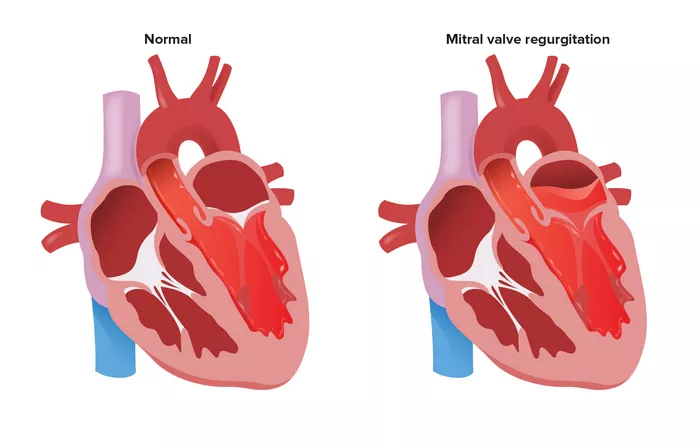The ongoing COVID-19 pandemic caused by the novel coronavirus, SARS-CoV-2, has led to significant global morbidity and mortality. While the respiratory manifestations of COVID-19 have been well-documented, emerging evidence suggests that the virus may also impact the cardiovascular system, leading to conditions such as myocarditis. Myocarditis, inflammation of the heart muscle, can have serious implications for patients with COVID-19, particularly those with severe illness.
What Is Myocarditis?
Myocarditis is a condition characterized by inflammation of the myocardium, the muscular layer of the heart. It can result from various causes, including viral infections, autoimmune diseases, and toxic exposures. Myocarditis can present with a wide range of symptoms, from mild flu-like symptoms to severe heart failure or sudden cardiac death. Diagnosis often involves a combination of clinical evaluation, imaging studies (such as echocardiography and cardiac MRI), laboratory tests, and sometimes endomyocardial biopsy.
Evidence of Myocarditis in COVID-19 Patients
Since the onset of the COVID-19 pandemic, there have been reports of myocarditis in patients with SARS-CoV-2 infection. Studies have documented cases of myocardial injury, elevated cardiac biomarkers (such as troponin), and cardiac complications in individuals with COVID-19, suggesting a potential association with myocarditis. While the exact mechanisms of myocardial involvement in COVID-19 are still being investigated, several factors may contribute to the development of myocarditis in these patients.
Direct Viral Invasion And Inflammatory Response:
SARS-CoV-2 primarily targets cells expressing angiotensin-converting enzyme 2 (ACE2) receptors, which are abundant in the respiratory tract but also present in other tissues, including the heart. It is hypothesized that the virus may directly infect cardiac myocytes, leading to myocardial inflammation and injury. Additionally, the host inflammatory response to viral infection can further exacerbate myocardial damage, leading to the development of myocarditis.
Systemic Inflammatory Response Syndrome (SIRS):
Severe cases of COVID-19 are often associated with a dysregulated immune response characterized by systemic inflammation, cytokine release, and immune cell activation. This systemic inflammatory response syndrome (SIRS) can contribute to multiorgan dysfunction, including myocardial injury and myocarditis. Elevated levels of pro-inflammatory cytokines, such as interleukin-6 (IL-6), tumor necrosis factor-alpha (TNF-α), and interleukin-1 beta (IL-1β), have been observed in patients with severe COVID-19 and may play a role in the pathogenesis of myocarditis.
Hemodynamic Instability And Hypoxia:
COVID-19 can lead to respiratory failure and acute respiratory distress syndrome (ARDS), resulting in hypoxemia and hemodynamic instability. Reduced oxygen delivery to the myocardium, coupled with increased myocardial oxygen demand due to systemic inflammation and cytokine release, can predispose COVID-19 patients to myocardial ischemia and injury. Hypoxia-induced oxidative stress and endothelial dysfunction may further contribute to myocardial damage and inflammation.
Pre-existing Cardiovascular Risk Factors:
Patients with pre-existing cardiovascular risk factors, such as hypertension, diabetes, obesity, and coronary artery disease, may be at increased risk of developing myocarditis or other cardiac complications during COVID-19 infection. These comorbidities can exacerbate myocardial injury and inflammation, leading to worse clinical outcomes in affected individuals.
Clinical Presentation And Diagnosis
Myocarditis associated with COVID-19 may present with a spectrum of symptoms, ranging from mild chest pain, palpitations, and dyspnea to more severe manifestations such as acute heart failure, arrhythmias, and cardiogenic shock. Diagnosis often involves a combination of clinical suspicion, laboratory testing (including cardiac biomarkers and inflammatory markers), electrocardiography (ECG), echocardiography, cardiac MRI, and sometimes endomyocardial biopsy to confirm the presence of myocardial inflammation.
Management And Treatment Considerations
The management of COVID-19-associated myocarditis is challenging and often requires a multidisciplinary approach involving cardiologists, infectious disease specialists, and critical care physicians. Treatment strategies may include supportive care, such as oxygen therapy, hemodynamic support, and pharmacological interventions to reduce myocardial inflammation and improve cardiac function. In severe cases, mechanical circulatory support or extracorporeal membrane oxygenation (ECMO) may be necessary.
Conclusion:
In conclusion, emerging evidence suggests that COVID-19 can lead to myocarditis, inflammation of the heart muscle, in some patients. The exact mechanisms of myocardial involvement in COVID-19 are still being elucidated, but factors such as direct viral invasion, systemic inflammation, hypoxia, and pre-existing cardiovascular risk factors may contribute to the development of myocarditis in affected individuals.
Clinicians should be vigilant for signs and symptoms of myocardial injury in patients with COVID-19 and consider appropriate diagnostic testing and management strategies to optimize patient outcomes. Further research is needed to better understand the pathophysiology of COVID-19-associated myocarditis and to develop targeted therapeutic interventions for affected individuals.

